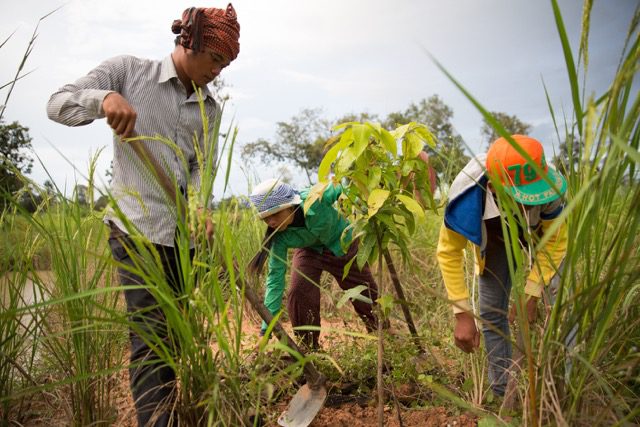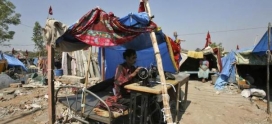Growing A Future
The Green Shoots Foundation (GSF) works in six different countries throughout Asia, including Cambodia, the Philippines, Myanmar, Vietnam, and Kyrgyzstan. GSF’s work, along with programs targeting healthcare and education, include a dynamic initiative developed over the last few years, called the Food & Agriculture and Social Entrepreneurship (FASE) program. Two projects currently underway in Cambodia are gaining momentum and recognition in the region for their unique combination of agriculture, peer education, and community building. Head of Monitoring& Evaluation for GSF, Muneezay Jaffery, highlights the ways in which these FASE initiatives are engaging young people in an effort to secure the future of sustainable agriculture in rural communities in Southeast Asia.
The two most noteworthy programs are targeted at educating rural communities about the immediate and long-term benefits of sustainable agriculture. The first, in North West Cambodia, Jaffery explains is “assisting with the management of a 5.5 hectare rice field for an education center run by local partners Enfants du Mekong.” Despite initial skepticism from the local farmers, GSF and local partner, Enfants du Mekong have demonstrated the real-time value of sustainable agricultural practices, which Jaffery describes as “mixed cropping/co-cultivation” and “integrated pest management”. Through the use of these sustainable practices, GSF’s rice field is producing increasingly tremendous yields, which is surprising local farmers and inspiring more involvement from community members. These yields not only provide opportunities for education, as Cambodian youth learn about how to use natural farming methods, but also provide the chance for young people to experiment with agricultural entrepreneurship and how to manage agriculture-based business.
The second program, also underway in Cambodia is a school and community garden project that is rapidly expanding all over the region. Jaffery explains, “the vegetable garden pilot project, now its third year, which we have managed to scale up into the Agriculture Skills for Public Schools (ASPUS) project, which replicates the pilot activities in about 42 State schools.” With this project both teachers and students are cultivating model gardens, building enthusiasm for agriculture, and sharing agricultural skills in the community. According to Jaffery, to grow the program, GSF trained an initial group of “School Garden Facilitators”, who first “set up gardens in their own schools” and then went on to share vegetable gardening techniques with 90 more students each year
Jaffery explains why GSF’s FASE programs employ such a youth-centered approach: “A large number of [young people] end up in low paid agricultural jobs with little or no access to vocation training, or they migrate to urban areas or across the border to work in garment factories. Green Shoots and our local partners for FASE want to offer the young people a ‘plan B’—and eventually hope it becomes their plan A. We want them to see the rural economy as a viable option, and an exciting option—one that can support them and their families.” GSF’s approach recognizes that giving young people in Southeast Asia the opportunity to learn and experiment with sustainable agriculture provides opportunities beyond the field.
Although, these programs have not been without challenges, which Jaffery explains have included everything from breaking old agricultural habits to unpredictable weather conditions, the implementation of these FASE projects has demonstrated that adopting a hands-on approach to agricultural education engages community members in many ways. Jaffery describes that tackling “interrelated issues such as: rural exodus, unsustainable farming techniques, lack of education and lack of social capital for the promotion of rural entrepreneurship” has the potential to bring about real change in the region.
Read full article at: Growing A Future
Original Source: foodtank



